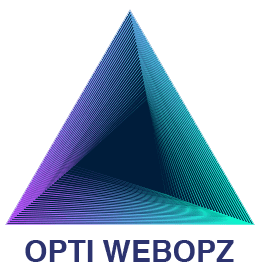In the dynamic world of digital marketing, Pay-Per-Click Advertising stands out as a cornerstone strategy for businesses aiming to boost their online presence. As a highly effective tool, PPC offers unparalleled control and targeting capabilities, making it essential in the toolkit of savvy digital marketers. In this comprehensive guide, we’ll delve into the nuances of PPC, offering insights and strategies for leveraging its full potential, backed by real-world examples.

Understanding PPC Advertising
PPC, or pay-per-click, is a model of digital advertising where advertisers pay a fee each time their ad is clicked. It’s akin to buying visits to your site, as opposed to earning them organically. PPC ads come in various formats — text, images, videos — and are displayed across diverse platforms like search engines, websites, and social media. They’re not just about visibility; they’re about reaching the right audience at the right time.
The Mechanics of PPC
Creating a PPC campaign involves several strategic steps. First, you select the campaign type based on your objective, whether it’s driving sales, increasing leads, or boosting website traffic. Then, you refine your settings — targeting audiences, devices, and locations, and scheduling your ads. Next comes the budget and bidding strategy, where you determine how much you’re willing to pay per click. Finally, you build your ad, making sure it’s aligned with your landing page’s content and calls to action.
The Role of Search Engine Advertising in PPC
Search engine advertising is a critical component of PPC. It lets you bid for ad placement in a search engine’s sponsored links when someone searches for keywords related to your business. This strategic placement means your ads appear to potential customers precisely when they’re searching for what you offer.
Budgeting and Bidding Strategies

In PPC, managing your budget and choosing the right bidding strategy are crucial. Your ad’s position and cost per click are determined by your budget, bid, and ad quality. A well-structured bidding strategy can maximize your ad’s visibility while optimizing spending.
Maximizing PPC Campaign Effectiveness
Successful PPC campaigns hinge on creating relevant and trustworthy ads. Platforms like Google reward high-quality campaigns with better ad positioning and lower costs. Improving your Quality Score, focusing on relevant keywords, and crafting persuasive ad copy are vital for maximizing your PPC campaign’s ROI.
Key Components of Successful PPC Campaigns
At the heart of PPC is keyword research. Your campaign should revolve around relevant, exhaustive, and expansive keyword lists. Continuously refining these lists is key to capturing the full spectrum of your target audience. Equally important is the quality of your landing pages. They should have compelling content and clear calls to action that align with the search queries.
Expanding on Keyword Strategy in PPC

Effective keyword strategy is the backbone of successful PPC campaigns. This involves not only choosing the right keywords but also understanding keyword intent, using long-tail keywords to capture specific searches, and avoiding overly broad terms that lead to irrelevant clicks.
Analyzing and Adapting to PPC Campaign Data
A crucial aspect of PPC management is the analysis of campaign data. This involves examining click-through rates, conversion rates, and other key performance indicators. By understanding what works and what doesn’t, you can adapt your strategies to improve campaign performance over time.
Leveraging Advanced PPC Techniques
Advanced PPC techniques can significantly enhance campaign performance. This includes using ad extensions to provide additional information, experimenting with different ad formats, and leveraging remarketing strategies to re-engage past visitors.
Regular Management and Optimization of PPC Campaigns
PPC requires ongoing management. Regularly adding new keywords, including negative ones to filter out irrelevant traffic, and refining your landing pages are part of this process. It’s also vital to continually analyze your campaign’s performance and make adjustments to maintain its effectiveness.
Case Studies and Success Stories
To illustrate the power of PPC, consider the case of [Brand X], which saw a 50% increase in conversions by optimizing their keyword strategy and refining their ad copy. Another example is [Brand Y], which achieved a significant decrease in cost-per-acquisition by focusing on landing page optimization and adding negative keywords.
Conclusion
PPC advertising is a dynamic and powerful tool in the digital marketing arsenal. By understanding its mechanics, regularly optimizing your campaigns, and staying abreast of the latest trends, you can harness PPC’s potential to drive meaningful results for your business. Remember, the key to PPC success lies in strategic planning, continuous optimization, and an in-depth understanding of your audience.
Call to Action:
Elevate your digital marketing results with OptiWebOpz’s expert PPC strategies! Transform your online advertising and drive impactful results. Ready to unleash the power of Pay-Per-Click for your business? Visit OptiWebOpz.com now for a custom PPC plan crafted to your unique needs. Don’t let your competitors outshine you – take charge of your digital success with our proven PPC solutions. Click here to start your journey to PPC excellence and watch your business soar!






